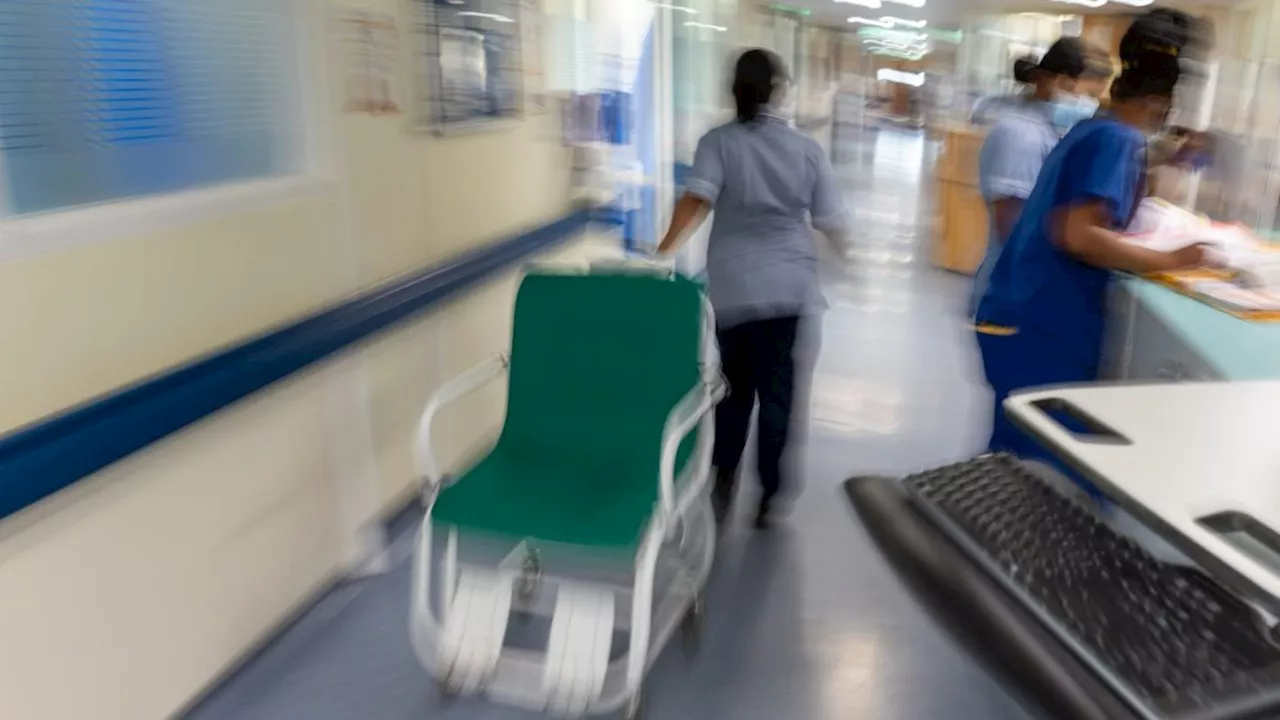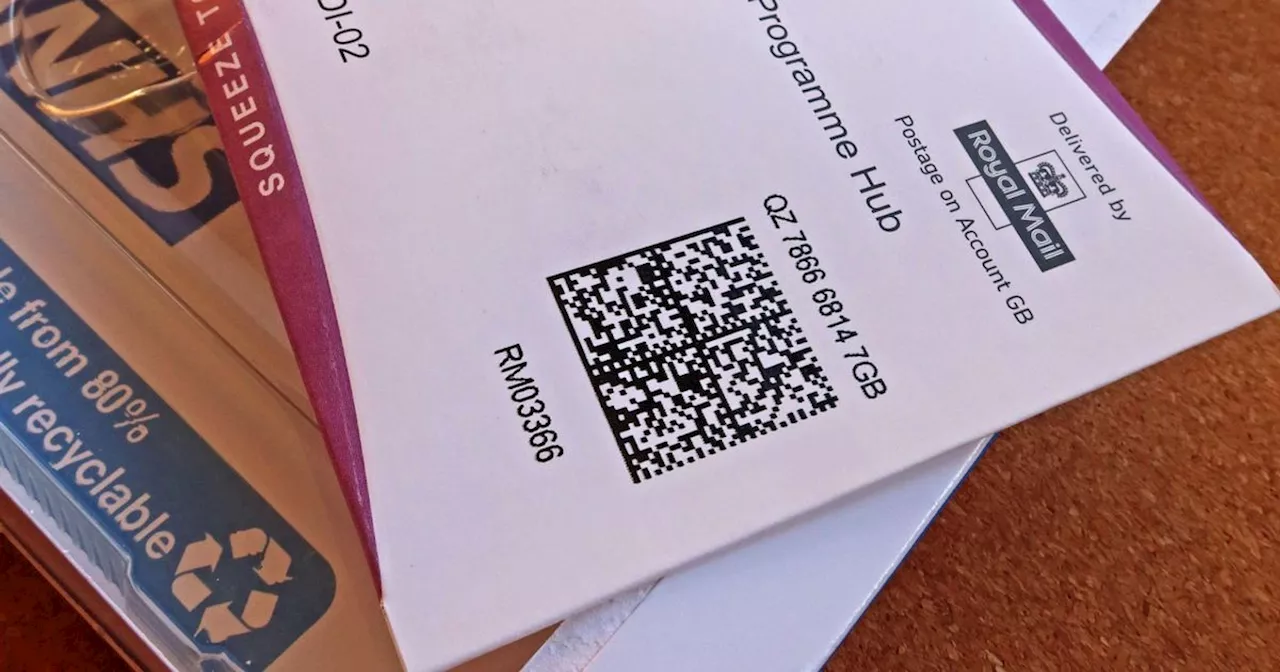The NHS is expanding its bowel cancer screening program in England to include people aged 50 to 74, sending out faecal immunochemical test (FIT) kits to millions. The expansion aims to increase early detection and improve survival rates. The NHS is encouraging participation, emphasizing that early detection saves lives.
Hundreds of thousands of people in England will soon receive a bowel cancer testing kit in the post as part of an expansion of the National Health Service ( NHS ) screening program. This expansion means approximately 850,000 more people will be included, with those aged 50 and 52 set to receive kits by the end of March. Those aged 51 and 53 will have to wait until their next birthday but will then be posted a kit.
Currently, the program covers people aged 54 to 74, but with this expansion, everyone aged 50 to 74 will eventually be offered a home screening test to help detect bowel cancer. The faecal immunochemical test (FIT) checks for blood in a stool sample, with individuals collecting their own sample at home before posting it back to NHS labs in a prepaid return envelope. Results are then sent out to people, along with any information about further tests, if required. The NHS is encouraging people to take up the test after figures showed that fewer than 60% of 54 to 57 year olds do so, compared with more than 70% of those aged 60 to 74. People are much more likely to survive bowel cancer or have successful treatment if the disease is caught before it has spread. Steve Russell, NHS England's national director for vaccinations and screening, has urged the public to participate in bowel cancer screenings, especially as the program expands to include those aged 50. He underscored the importance of early detection, saying: 'Lives are saved when cancers are caught early and the expansion of the NHS bowel cancer screening programme to those aged 50 will help to spot signs of bowel cancer sooner, and potentially save thousands of lives. We are seeing positive uptake of the home-testing FIT kits, with over two-thirds of those eligible returning their tests, but this drops off in the lower age groups and we want to see even more people taking up the offer.' Furthermore, he conveyed a New Year's message regarding the significance of the test: 'While taking a test for bowel cancer may be the last thing you're thinking about as you enter the new year, it could save your life, so if you've got a FIT kit hiding in a drawer at home, I would encourage you to return it quickly as you can. Most people won't have signs of cancer, but if the test does detect anything, we can ensure they are sent on for further tests and treatment.' Professor Peter Johnson, the NHS England national clinical director for cancer, has raised alarm over the escalating cases of bowel cancer in younger demographics, urging that: 'Thousands of people in England develop bowel cancer each year, and there are concerns that it is becoming more common for people in their 50s. There is no need to feel embarrassed about poo the test is quick and simple to use and can detect signs of bowel cancer, often before symptoms appear, so please do return your FIT kit if you are sent one. If anyone experiences symptoms such as blood in their poo or severe stomach pain, no matter their age, they should speak to their GP and get it checked out as soon as possible.' Furthermore, he underscored that data indicates roughly 2% of individuals who complete the FIT examination may require additional investigation. The screening program for bowel cancer addresses those within the age bracket of 50 to 74, yet individuals beyond 75 years are encouraged to request a screening kit by contacting the free NHS bowel cancer helpline at 0800 707 60 60. His comments come on the heels of new research advocating that regular consumption of milk might cut the chances of developing bowel cancer by nearly 20%. This study out of the University of Oxford presents what is considered strong evidence that calcium plays a significant role in diminishing the likelihood of this fatal condition. A new study has determined that a daily glass of wine could increase the risk of bowel cancer by 15%. As one of the most frequently diagnosed cancers in the UK, with over 44,000 new cases each year, more than half of these cases could potentially be prevented. Lifestyle factors play a significant role, with processed meat consumption raising the risk by 13% and obesity accounting for an 11% increase in the likelihood of developing the disease. Bowel cancer symptoms to look out for include prolonged stomach pain, lasting longer than three weeks, finding blood in your stool, unexplained changes in bowel habits persisting for more than three weeks, not feeling completely empty after passing stool, discomfort or pain in the bottom area, and unusual stools that appear pale and greasy. Public health minister Andrew Gwynne emphasized, 'The evidence is overwhelming this rollout will catch more cases at an earlier stage, preventing deaths and giving our fantastic NHS staff the precious time needed to treat people earlier and improve their life chances.
Bowel Cancer NHS Screening FIT Test Early Detection Health Cancer England
United Kingdom Latest News, United Kingdom Headlines
Similar News:You can also read news stories similar to this one that we have collected from other news sources.
 Understanding Your Bowel Movements: A Vital Step in Bowel Cancer DetectionThis article highlights the importance of being aware of bowel cancer symptoms and encourages people to understand their bowel movements. It discusses the groundbreaking liver transplant surgery performed on a young woman diagnosed with stage four bowel cancer, emphasizes the need for early detection, and addresses common concerns about embarrassment associated with discussing bowel health with healthcare professionals.
Understanding Your Bowel Movements: A Vital Step in Bowel Cancer DetectionThis article highlights the importance of being aware of bowel cancer symptoms and encourages people to understand their bowel movements. It discusses the groundbreaking liver transplant surgery performed on a young woman diagnosed with stage four bowel cancer, emphasizes the need for early detection, and addresses common concerns about embarrassment associated with discussing bowel health with healthcare professionals.
Read more »
 NHS Lowers Bowel Cancer Screening Age to 50 in Tribute to Dame Deborah JamesThe NHS is lowering the bowel cancer screening age from 60 to 50, making four million more people eligible for the life-saving check. This change is a tribute to the late Dame Deborah James, a tireless campaigner for early diagnosis of bowel cancer.
NHS Lowers Bowel Cancer Screening Age to 50 in Tribute to Dame Deborah JamesThe NHS is lowering the bowel cancer screening age from 60 to 50, making four million more people eligible for the life-saving check. This change is a tribute to the late Dame Deborah James, a tireless campaigner for early diagnosis of bowel cancer.
Read more »
 NHS Trial Tests 'Miraculous' Ingredient for Bowel Cancer PreventionA major NHS trial is investigating whether resveratrol, a compound found in grapes, red wine, and other foods, can help prevent bowel cancer. Experts are exploring the possibility of using a concentrated form of resveratrol in pill form to reduce disease risk. While resveratrol shows promise, consuming enough through diet alone is impractical and unhealthy. Excessive alcohol consumption, a potential source of resveratrol, is linked to increased cancer risk.
NHS Trial Tests 'Miraculous' Ingredient for Bowel Cancer PreventionA major NHS trial is investigating whether resveratrol, a compound found in grapes, red wine, and other foods, can help prevent bowel cancer. Experts are exploring the possibility of using a concentrated form of resveratrol in pill form to reduce disease risk. While resveratrol shows promise, consuming enough through diet alone is impractical and unhealthy. Excessive alcohol consumption, a potential source of resveratrol, is linked to increased cancer risk.
Read more »
 NHS to Lower Age for Bowel Cancer Screening to 50The National Health Service (NHS) in England is committed to reducing the age for regular bowel cancer screening to 50 as part of its 10-year Long Term Plan. Currently, screening using a home kit (FIT) is available for those aged 54 to 74. The change will be implemented gradually, starting with the 56-year-old cohort in 2021 and reaching 50 by 2025.
NHS to Lower Age for Bowel Cancer Screening to 50The National Health Service (NHS) in England is committed to reducing the age for regular bowel cancer screening to 50 as part of its 10-year Long Term Plan. Currently, screening using a home kit (FIT) is available for those aged 54 to 74. The change will be implemented gradually, starting with the 56-year-old cohort in 2021 and reaching 50 by 2025.
Read more »
 Early Bowel Cancer Detection Crucial After UK Transplant SuccessA recent successful liver transplant for advanced bowel cancer in the UK highlights the importance of early detection for this prevalent disease. Bowel cancer is the fourth most common cancer in the UK and the second biggest cancer killer. Early signs include changes in bowel habits and should prompt a visit to a doctor.
Early Bowel Cancer Detection Crucial After UK Transplant SuccessA recent successful liver transplant for advanced bowel cancer in the UK highlights the importance of early detection for this prevalent disease. Bowel cancer is the fourth most common cancer in the UK and the second biggest cancer killer. Early signs include changes in bowel habits and should prompt a visit to a doctor.
Read more »
 Bowel Cancer Symptoms: Early Signs to Watch For After UK Transplant SuccessA recent successful liver transplant for advanced bowel cancer in the UK highlights the importance of early detection. This article discusses the common symptoms of bowel cancer, including changes in bowel habits, and emphasizes the need for awareness and prompt medical attention.
Bowel Cancer Symptoms: Early Signs to Watch For After UK Transplant SuccessA recent successful liver transplant for advanced bowel cancer in the UK highlights the importance of early detection. This article discusses the common symptoms of bowel cancer, including changes in bowel habits, and emphasizes the need for awareness and prompt medical attention.
Read more »
